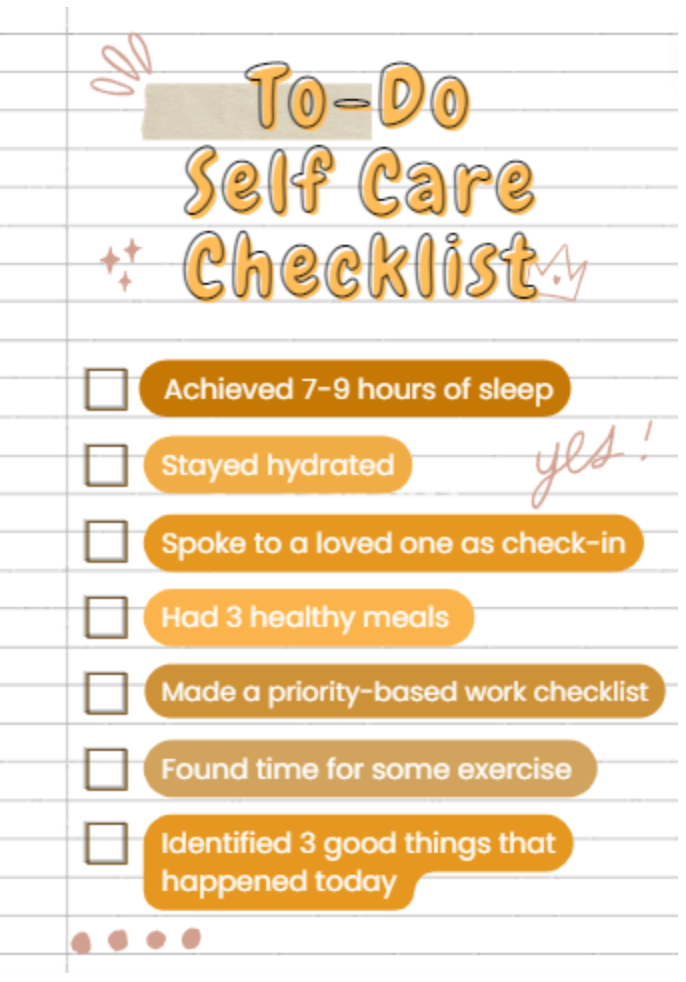Self-Care: An Antidote for Academic Stress
- Noopa Roshan

- Jun 20, 2023
- 3 min read

Assignments. Submissions. Marks. Pursue Higher education. Prospects for a Career. Presentations. And the list goes on. I'm sure many of you, my readers, are swamped with so much work that we're unsure where it starts and where it ends. When Jack said, "All work and no play makes me a dull man," he wasn't lying. But, for some reason, I, like many other college students, can't seem to find a way out of the maze of never-ending work to the finish line of peace, social life, and a non-stressful work life. In fact, I often wake up in the morning with the urge to have a fresh start and set my chaotic life in order, but the time I get started on at least thinking about my to-do list, I find myself sinking into a hole of despair and lethargy.
This could perhaps be a result of academic stress that we face as a result of our psychological state being affected from continuous social and self-imposed pressure in an academic environment that depletes our psychological reserves. Academic stress can lower motivation, impair academic performance, and increase college dropout rates. Excessive academic stress can lead to an increase in the prevalence of psychological and physical problems such as depression, anxiety, nervousness, and stress-related disorders, which can have an impact on one’s academic performance. Academic frustration, academic conflicts, academic anxieties, and academic pressures are known to be the four components of academic stress that are usually visible in a student.
In psychology classes, it is taught that stress by itself is not a bad thing; it in fact helps us to perform better when in mild levels. For a college student, stress can be a motivating factor that helps one to stay on track in our life. However, when it becomes overwhelming, it causes one to have difficulty focusing and completing tasks. And while we may manage to cruise through our life whilst barely surviving, it is never an effective method in the long run. When everything comes to a standstill in such situations where one reaches the pinnacle of stress is where counteractive techniques should be employed to ensure that we are on our way to reach the pinnacle of success rather than the pinnacle of hopelessness.
One such perfect technique is self-care, which can be understood as the practice of looking after and prioritising one’s own mental health and physical wellbeing. Self-care will help you keep your physical, emotional, and mental reserves in order to prevent and manage stress. This includes getting enough sleep, exercising, relaxing, and eating well. What is your favourite stress-relieving activity? If you have any go-to strategies such as having a pint of ice cream or going on a long drive (which are actually my to-go techniques), consider adding it to your routine! Creating a "diverse portfolio" of stress-relief strategies to adapt to your mood and resources is often beneficial. Here's a sample check-list you could use!

Oftentimes, we find no time to spare for even these tiny little activities. If you're stressed out to the point where you don't have time or energy to devote to self-care, that's when you need replenishment the most! Prioritising self-care is a choice that only you can make, and changing your behaviour can be difficult. However, if you are still having difficulty managing it all, do not be afraid to seek assistance from family members or a professional, who can really assist you in getting things back on track.
Take care until the next time, dear readers! Please take a moment to leave your feedback about this post here.




Comments